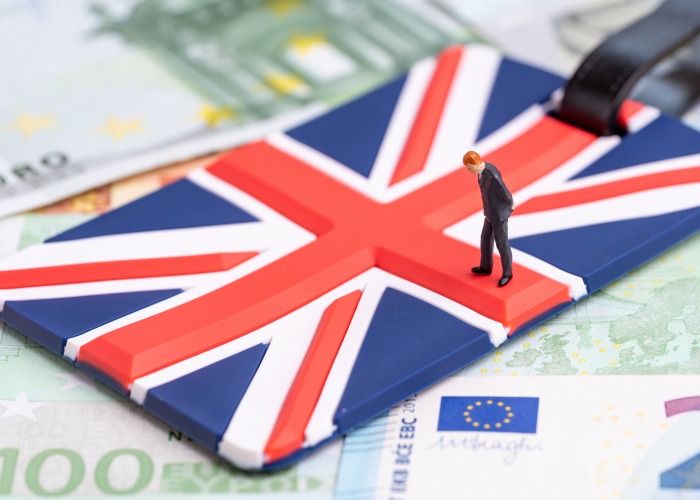Financial wellbeing ‒ how the UK ranks against other European nations

Report reveals Brits are well informed about money but too reliant on debt to get by.
The finances of people across the UK are in a precarious state, with large numbers of us reliant on borrowing just to pay off our regular bills, according to a new study.
Credit firm Intrum has published a new report that delves into the ‘financial wellbeing’ of different European nations.
Respondents from each nation were tested on four main areas in order to calculate an overall wellbeing score out of 10.
Those areas were: the ability to pay bills on time, credit freedom, saving for the future, and financial literacy.
The UK scored pretty well overall, finishing eighth out of 24 nations with a total score of 6.38 out of 10, above the average of 6.21.
Germany came first, with the Scandinavian nations also scored highly.
Here’s how the top 10 looked:
|
Nation |
Score |
|
Germany |
6.89 |
|
Austria |
6.77 |
|
Sweden |
6.72 |
|
Switzerland |
6.65 |
|
Finland |
6.55 |
|
Norway |
6.47 |
|
Denmark |
6.40 |
|
UK |
6.38 |
|
Italy |
6.35 |
|
Ireland |
6.34 |
Paying bills on time
There’s no question that the ability to pay what you owe, to a deadline, is a good sign of being on top of your finances. After all, if you have the money to hand, there’s no reason to delay paying up.
In this category, the UK drops out of the top 10 however.
This is a concerning area for the nation’s finances, with a report last month from the Universities of Lincoln and Birmingham suggesting that millions of people across the country have fallen behind on essential bills.
For example, the researchers reckon that over the last year 1.6 million households have been late with council tax payments, more than million have dropped behind on water bills, while hundreds of thousands have fallen into rent arrears.
In contrast, Intrum’s study suggests that nine out of every 10 Germans are confident about paying their bills on time each month.
Borrowing to make ends meet

The next category, of credit freedom, is also a concerning read.
This looks at the extent to which people are borrowing in order to pay their bills, their level of borrowing compared to their monthly income, and the gross debt to income ratio of different households.
And here the UK was ranked 21st out of the 24 nations studied, a demonstration of just how dependent we are on debt to get by.
The study found that more than one five (22%) of Brits have borrowed money or gone to their credit limit in order to pay a bill within the last six months, though thankfully that is down from the 29% of Brits who admitted the same last year.
One in four Brits said they would need to borrow in order to pay off a minor unexpected bill, though those who need to borrow tend to go to family and friends rather than taking out an actual form of credit.
How to build up an emergency savings fund
Putting a little aside
There is some cause for optimism from the savings section of the report though.
More than three-quarters of us are saving at least some money on a monthly basis, while a similar number (70%) are confident of saving enough for a comfortable retirement.
Despite getting into the savings habit, more than half (57%) believe they will never be able to afford owning their own home.
Your complete guide to buying your first home
We know what we are talking about
Perhaps the most eye-opening result of the study is the financial literacy section, testing the ability of people from different nations to match basic financial terms ‒ things like credit score, APR and inflation ‒ to their definitions.
While across the continent an average of 37% were unable to match the terms, this dropped to just 25% in the UK.
That makes us the second-best performer on financial literacy, behind only Finland.
Financially literate but debt-dependent
The fact that our financial literacy is so high is promising.
It suggests that as a nation we have a decent grasp on just how financial products work, and how they can benefit us.
Unfortunately, it also suggests that plenty of people are all too informed about just how dicey their financial position is. It’s deeply concerning that so many people are apparently relying on debt on a regular basis just to meet their regular bills.
As a nation, we need to get out of this problematic cycle.
Otherwise, the slightest unexpected expense could leave us stuck in the red for a lengthy period, with all the added costs that brings.
Comments
Be the first to comment
Do you want to comment on this article? You need to be signed in for this feature